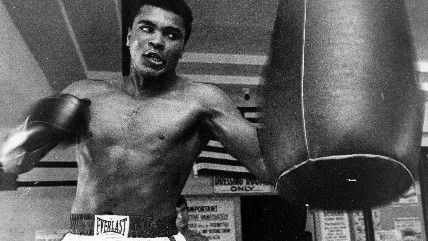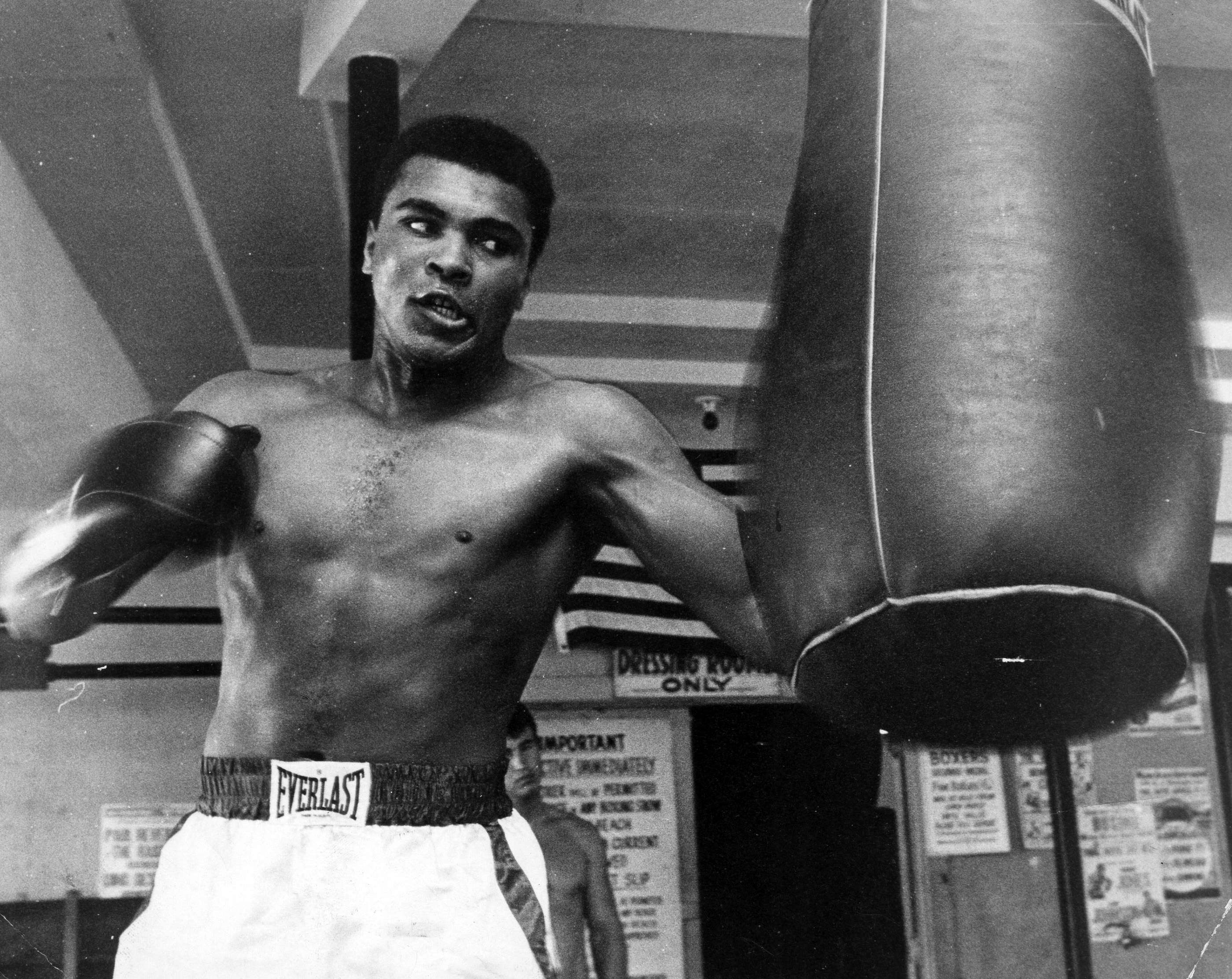Muhammad Ali Was America's Most Effective Anti-War Advocate (And Still Is)
The Greatest put his life and career on the line and helped turn public sentiment against the Vietnam War.


On March 6, 1966, Muhammad Ali was the 24-year-old undisputed heavyweight champion of the world and the number one song in the country was SSgt. Barry Sadler's "Ballad of the Green Berets," which includes lyrics about "brave men, who jump and die" and describes the fate of one of "America's best" who "died for those oppressed."
Over 180,000 U.S. troops were fighting in Vietnam, nearly 2,000 had already been killed, and over 380,000 more men would be drafted into the military later that year.
And yet, there was Ali, an outspoken famous black man — a member of the Nation of Islam, no less — telling his country that he would not die for its cause, because that cause was wrong and that he would prefer to be taken to jail than to shoot "poor people."
It is hard to overstate how unpopular it was to be anti-war at this time. Though there were protests and the occassional ceremonial draft card burning, according to Gallup, 59 percent of Americans still believed in the war, while 16 percent held no opinion about whether or not it was a mistake.
After being arrested and convicted of felony draft evasion, stripped of his titles, and forced to miss four prime years of his career because the paragons of virtue known as state boxing commissions denied him the right to punch people for money, Ali served as a warning to others who might defy the state.
While Ali was in exile in 1968, CBS News anchor Walter Cronkite delivered an on-air commentary that the U.S. was trapped in a "stalemate." This famous broadcast is frequently, mistakenly cited as the moment most responsible for turning the country against the war. One of the many problems with that narrative is that "the most trusted man in America" was late to the anti-war party, which Ali contributed mightily to starting. Americans had been growing increasingly cynical about the possibility of "victory" in Vietnam for years, but in just the first few months following Ali's refusal to be conscripted, the percentage of Americans willing to tell pollsters that the war was a mistake jumped by 11 percentage points, and they would never support the war in as high numbers as they did prior to Ali's famous anti-war statement.
Though there has been no military draft since Vietnam, there have been wars, and there have been celebrities who endured the hatred of their fellow citizens and taken a beating in their bank accounts for adopting a principled stand against war. But with all due respect to the Dixie Chicks, who arguably took the most shit of any American celebrities to come out against the Iraq War before it began (after singer Natalie Maines made a single on-stage comment at a London concert about being against the war and embarrassed to be from Texas), Ali's opposition changed the game.
Like the pop country trio, Ali endured death threats and business suffered, but Ali (who was not yet wealthy) was literally barred by the government from earning a living. And while most of the architects of the Iraq War were pulling questionable stints in the national guard or finding other clever ways to avoid fighting an asymmetrical enemy in a Southeast Asian jungle, Ali told a country that loved sports heroes (but was fraught with institutionalized racism) that his conscience and belief in his God forbade him from doing the bidding of the state, even when its leaders were framing it as part of an existential battle with totalitarian communism.
Public protest against the Iraq War faded even as the war became a shameful, bloody quagmire, and once a Democrat became the Commander-in-Chief sending young men and women to die for a hopelessly lost cause, the anti-war movement receded and celebrity protest became practically non-existent.
But Ali's opposition wasn't a protest song or a bumper sticker or even a speech at an anti-war rally, it was a single young man willfully volunteering the most precious thing he could — his life and liberty — and in doing so laid the groundwork for a resistance to the war that ultimately became mainstream, and that resistance has been vindicated by history.
Author Tom Mullen wrote in a blog post on his website that Ali's commitment to "opposing an immoral and unnecessary war was not draft-dodging (a dance performed during the Vietnam War by all too many present-day neoconservative hawks), but was instead "based on the founding libertarian principle of nonaggression."
Ali's legacy can also be seen in Sen. Rand Paul's (R-Ky.) recently introduced amendment to the Senate's National Defense Authorization Act, which would do away with the draft entirely. Even though private citizens have not been conscripted into the military since the Vietnam War, the penalty for failing to register for Selective Service remains "imprisonment for up to five years and/or a fine of not more than $250,000."
50 years after Ali asked to be taken to jail over Vietnam, a Republican senator may yet be able to convince his colleagues to vote on ending the possibility that a young man like Ali would ever be forced to make that kind of decision again.
That we're having this conversation at all can at least be partly attributed to the selfless actions of The Greatest.


Show Comments (62)